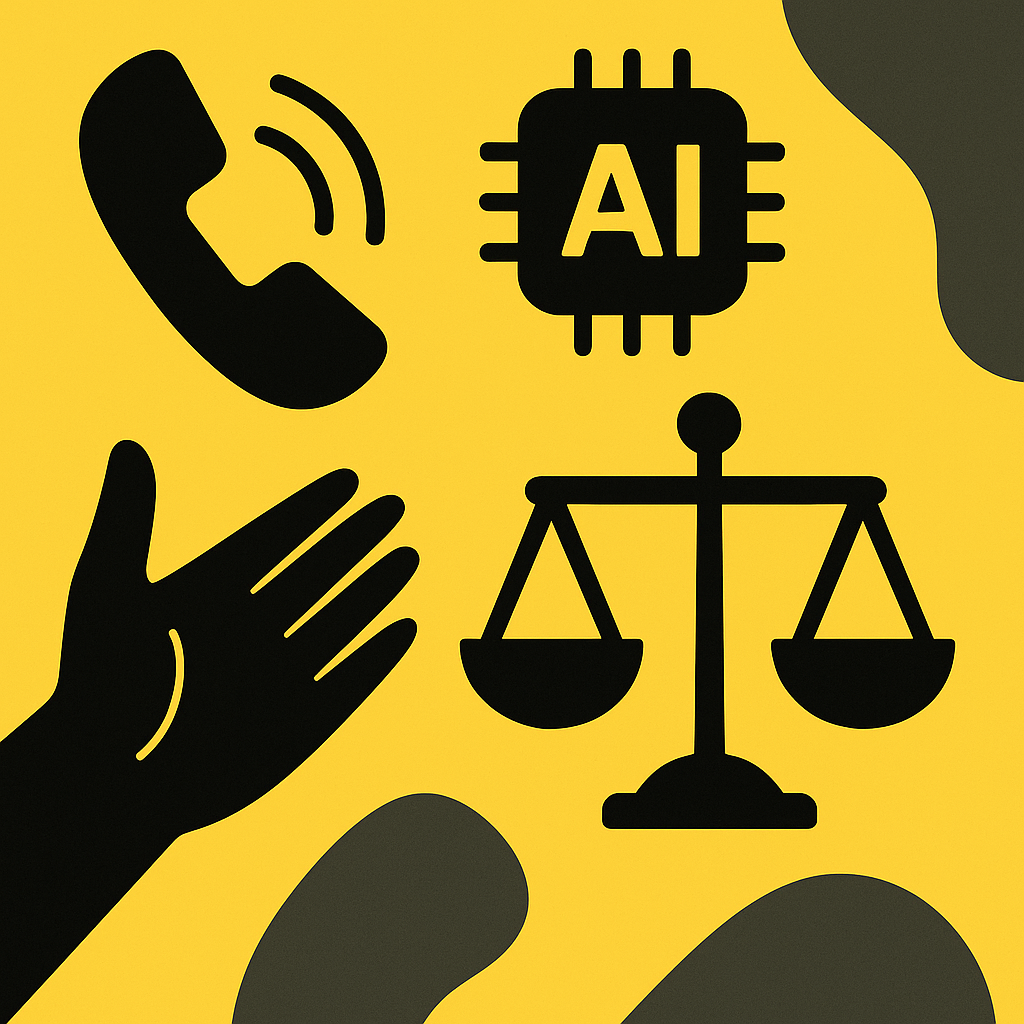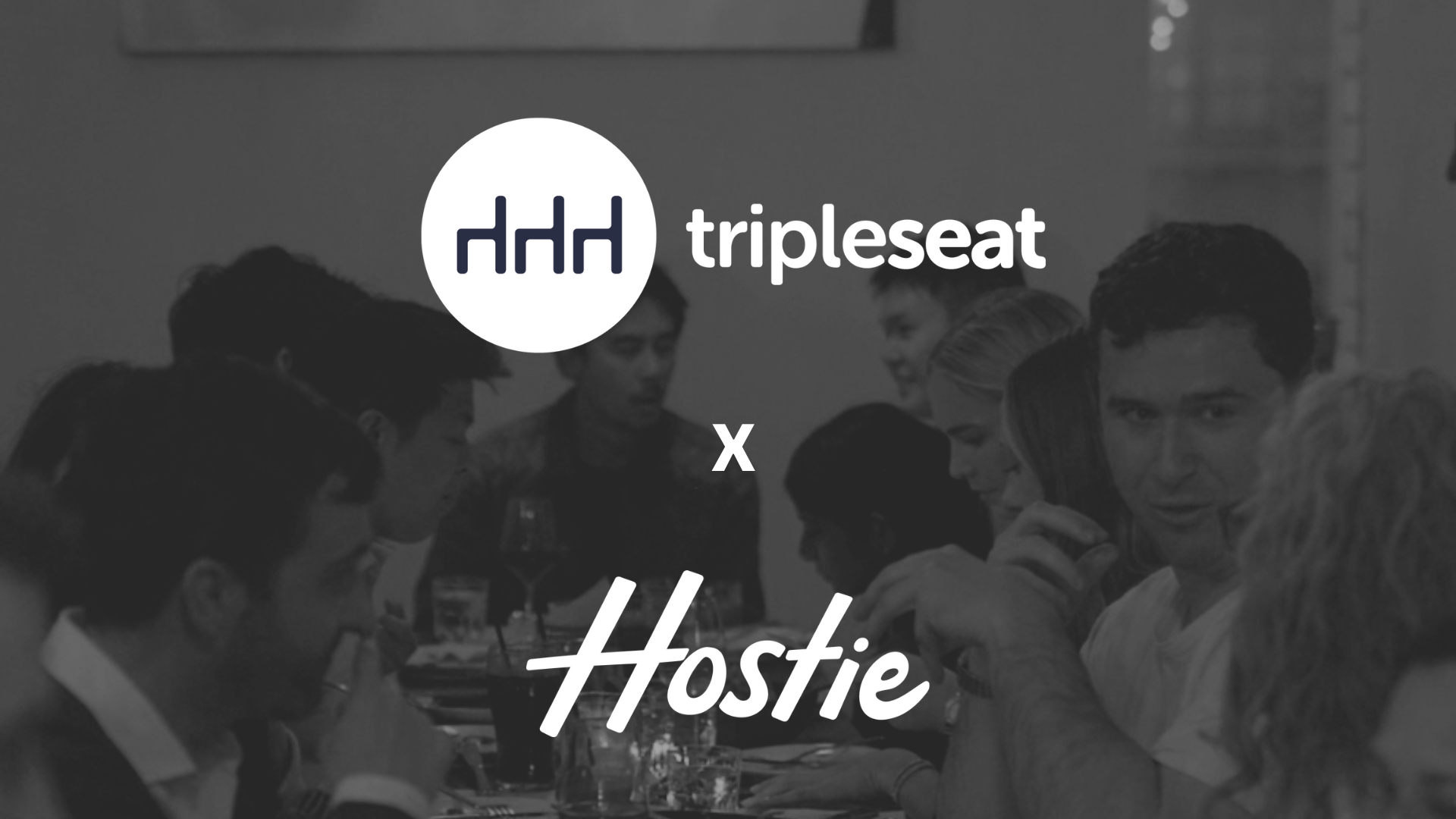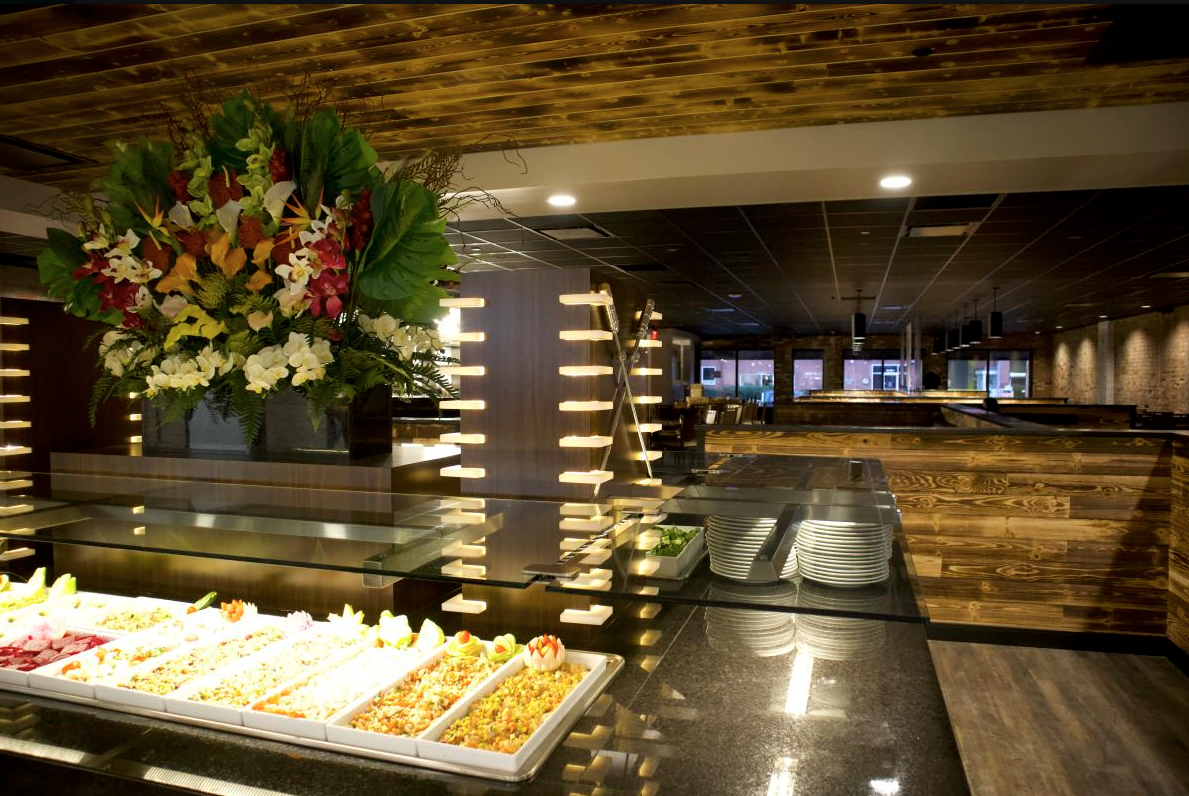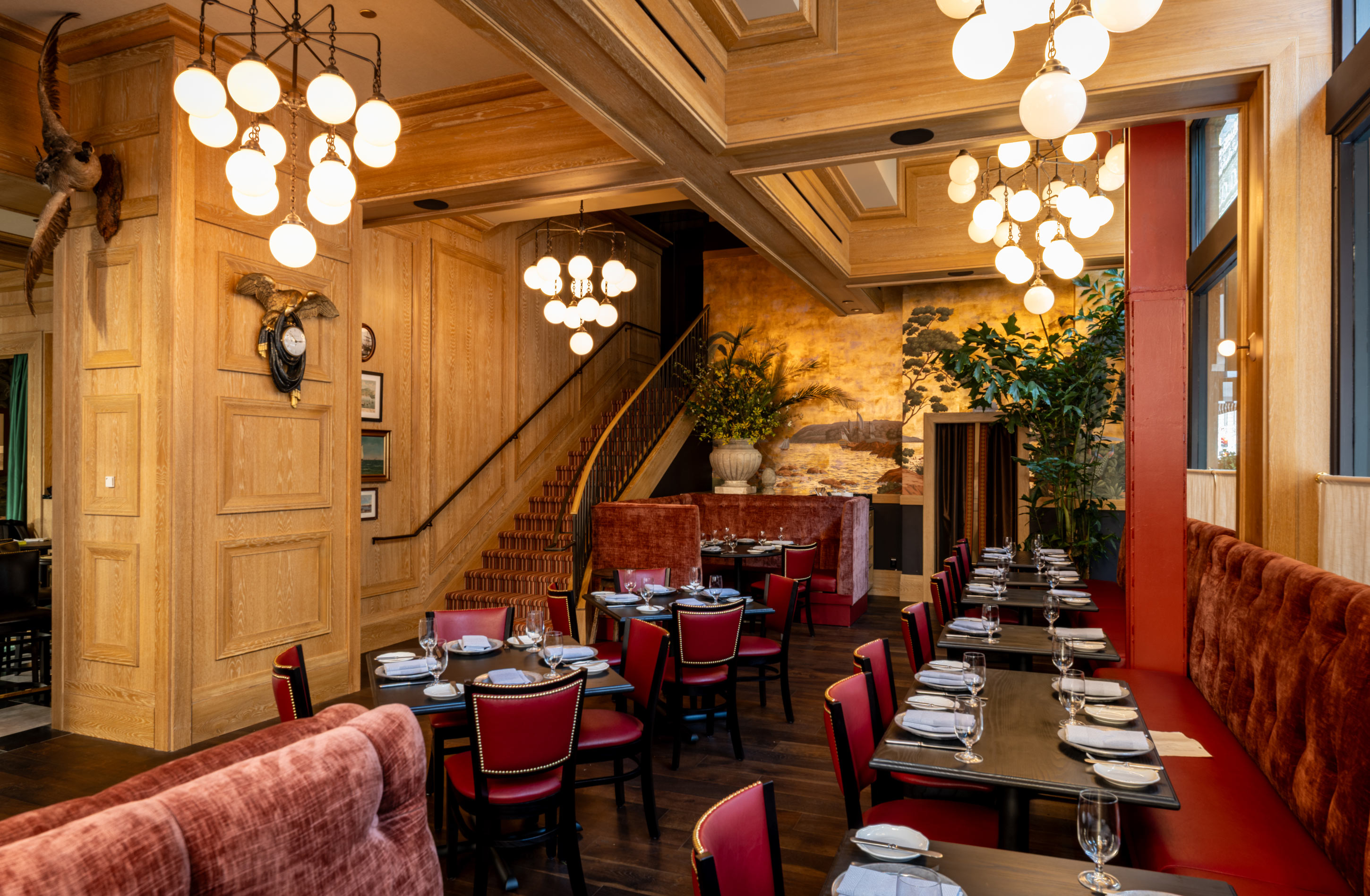
California's legal landscape for call recording has become increasingly complex, especially for restaurants using AI phone systems. With the rise of AI voice restaurant hosts now handling calls at establishments across major cities, understanding compliance requirements has never been more critical. (When You Call a Restaurant, You Might Be Chatting With an AI Host)
The restaurant industry has embraced AI phone technology at an unprecedented rate, with 34% of restaurants already adopting voice AI solutions and another 48% planning implementation within the next 12 months. (Voice AI Adoption Benchmarks 2025) However, California's Penal Code 632 and recent amendments create a legal minefield that restaurant operators must navigate carefully.
This comprehensive guide translates complex statute language into practical compliance steps, helping restaurant owners understand when to play pre-connect disclosures, how to obtain proper consent, and how long to retain recordings while staying compliant with California's two-party consent laws.
California Penal Code 632 requires all parties to a conversation to consent before recording can begin. This "two-party consent" law applies to any confidential communication, including phone calls to restaurants. The law carries serious penalties, including potential criminal charges and civil liability under the California Invasion of Privacy Act (CIPA).
For restaurants using AI phone systems, this means every call must be handled with explicit consent protocols. The challenge becomes more complex when considering that restaurants receive between 800 and 1,000 calls per month, making manual consent processes impractical. (2025 Best AI Phone Answering Systems with Native Toast POS Integration)
The Turner v. Nuance case in 2024 highlighted the importance of clear, unambiguous consent for AI-powered call recording systems. The court emphasized that consent must be informed and specific, not buried in general terms of service or privacy policies.
SB 690, which took effect in July 2025, introduced potential exemptions for certain commercial business purposes, but these exemptions come with strict requirements that many restaurant operations may not meet.
The restaurant industry is experiencing a technological transformation, with AI playing a significant role in customer experience management. The global food automation market is projected to reach $14 billion by the end of 2024, with a potential 69% increase in AI and robotics use in fast food restaurants by 2027. (Q3 2025 Restaurant Tech Trends)
AI voice restaurant hosts have become increasingly common in major metropolitan areas. If you recently called a restaurant in New York City, Miami, Atlanta, or San Francisco, chances are you spoke with an AI system rather than a human host. (When You Call a Restaurant)
Restaurants are turning to AI phone systems for compelling economic reasons. At $17 per hour, human hosts represent a significant labor cost, and turnover rates are high in these positions. (Now Hiring Hospitable Voice Bots) AI solutions are generating additional revenue of $3,000 to $18,000 per month per location, up to 25 times the cost of the AI host itself. (Q3 2025 Restaurant Tech Trends)
Analysis of over 500,000 restaurant calls from Q4 2024 to Q2 2025 showed a 91% drop in hold time and an 87% reduction in missed calls when AI handles the phone. (Peak-Hour Accuracy Showdown)
1. Immediate Notification
2. Timing Considerations
3. Language Requirements
Active vs. Passive Consent
California law generally requires active consent, meaning customers must take affirmative action to agree to recording. Simply continuing the call after hearing a disclosure may not constitute sufficient consent under strict interpretations of the law.
SMS Opt-In Protocols
For restaurants collecting customer phone numbers, implementing SMS opt-in can provide additional consent documentation:
Documentation Requirements
Minimum Retention Periods
While California law doesn't specify minimum retention periods for consensual recordings, consider these factors:
Maximum Retention Limits
California Consumer Privacy Act (CCPA) requires businesses to delete personal information when no longer necessary for the stated purpose. Establish clear retention schedules and automated deletion processes.
Storage Security Requirements
SB 690's July 2025 amendment introduced potential exemptions for recordings made for "commercial business purposes." However, this exemption comes with strict requirements that many restaurant operations may struggle to meet.
To qualify for the commercial business purpose exemption, restaurants must demonstrate:
The exemption does not apply to:
Restaurant groups operating in both one-party and two-party consent states face complex compliance challenges. The safest approach is to apply the most restrictive state's requirements across all locations.
State-by-State Considerations
| State Type | Consent Required | Key Requirements |
|---|---|---|
| Two-Party (CA, FL, PA, etc.) | All parties must consent | Pre-call disclosure, active consent, documentation |
| One-Party (TX, NY, GA, etc.) | Only one party needs to consent | Business can record without customer consent |
| Modified One-Party | Varies by specific statute | Review individual state requirements |
Modern AI phone systems can be configured to handle different consent requirements based on:
Hostie AI provides comprehensive integration capabilities that can be configured in under 60 minutes to handle complex compliance requirements across multiple locations. (Step-by-Step Integration Guide)
The California Invasion of Privacy Act (CIPA) provides a private right of action for violations of recording consent laws. Successful plaintiffs can recover:
Courts have been increasingly strict about consent requirements, particularly for automated systems. The Turner v. Nuance case established that:
1. Over-Disclosure Rather Than Under-Disclosure
2. Regular Compliance Audits
3. Staff Training Programs
AI System Setup
When configuring AI phone systems for California compliance:
Integration Considerations
Restaurants using POS systems like Toast or reservation platforms like OpenTable need seamless integration to maintain compliance while preserving functionality. Modern AI systems can integrate with existing restaurant technology stacks without disrupting operations. (2025 Best AI Phone Answering Systems)
Daily Operations Checklist
Weekly Review Process
Monthly Compliance Assessment
Implementing comprehensive recording compliance involves several cost categories:
Technology Costs
Operational Costs
The cost of non-compliance far exceeds compliance investments:
CIPA Violation Costs
With 98% of restaurant operators citing higher labor costs as a major challenge, AI phone systems provide significant value when implemented compliantly. (2025 Cost Showdown)
A: Yes, California's two-party consent law applies to all confidential communications, regardless of length or content. Even a brief call asking about hours or menu items requires consent if you're recording.
A: No, consent must be specific to call recording and obtained at the time of the call. General privacy policies are insufficient for CIPA compliance.
A: If a customer hangs up before consenting, you cannot record any portion of that call. Your system should be configured to only begin recording after explicit consent is obtained.
A: Retention periods should be based on your stated business purpose. Quality assurance might require 30-90 days, while training purposes might justify 6-12 months. Document your retention policy and stick to it.
A: No, the same consent requirements apply regardless of the call's purpose. All recorded calls need proper consent under California law.
A: If your restaurant is in California, you must follow California's two-party consent law regardless of where the customer is calling from. The location of the business typically determines which state's laws apply.
A: These calls may contain sensitive health information, making proper consent even more critical. Consider additional privacy protections for calls involving health-related information.
A: All parties on the call must consent to recording. This can be challenging with group calls, so consider alternative documentation methods for complex reservation calls.
Several bills in the California legislature could impact restaurant call recording requirements:
While call recording is primarily governed by state law, federal developments could impact compliance:
The restaurant industry is developing best practices for AI phone system compliance. Industry associations are working on standardized disclosure language and consent mechanisms that could simplify compliance across multiple jurisdictions.
When selecting an AI phone system for California operations, prioritize vendors offering:
Built-in Compliance Tools
Integration Capabilities
Security and Privacy Features
Navigating California's call recording laws while leveraging AI phone technology requires careful planning and ongoing attention to compliance. The restaurant industry's rapid adoption of AI voice systems makes understanding these requirements essential for avoiding costly legal pitfalls.
The key to successful compliance lies in implementing comprehensive procedures that go beyond minimum legal requirements. This includes clear pre-call disclosures, robust consent mechanisms, proper documentation, and secure storage practices. (Forbes: How AI is Transforming Restaurants)
Restaurant operators should view compliance not as a burden but as an investment in customer trust and business protection. With proper implementation, AI phone systems can deliver significant operational benefits while maintaining full legal compliance. The technology exists to handle complex compliance requirements seamlessly, allowing restaurants to focus on what they do best: providing exceptional hospitality experiences. (Terms and Conditions)
As the legal landscape continues to evolve, staying informed about regulatory changes and maintaining flexible compliance systems will be crucial for long-term success. Regular consultation with legal counsel and ongoing staff training ensure that your restaurant remains compliant while maximizing the benefits of AI phone technology.
💡 Ready to see Hostie in action?
Don't miss another reservation or guest call.
👉 Book a demo with Hostie today
CIPA (California Invasion of Privacy Act) requires two-party consent for recording phone calls in California. This means both the restaurant's AI phone system and the customer must consent before any call recording begins. Restaurants using AI voice hosts must implement proper consent mechanisms to comply with this law.
Yes, California's two-party consent law applies to all call recordings, including those made by AI phone systems. Restaurants must obtain explicit consent from callers before recording, typically through automated announcements or clear verbal notifications at the start of each call.
According to 2025 industry data, 34% of restaurants have already adopted voice AI solutions, with another 48% planning implementation within the next 12 months. AI voice restaurant hosts are particularly popular in major cities like New York, Miami, Atlanta, and San Francisco, with companies like Hostie AI leading the market.
Violating California's call recording laws can result in significant penalties including civil lawsuits, statutory damages, and potential criminal charges. Restaurants can face fines of up to $2,500 per violation, plus attorney fees and court costs, making compliance essential for any establishment using AI phone systems.
Restaurants should implement clear consent notifications at call start, maintain detailed recording policies, ensure AI systems can handle consent requests properly, and regularly audit compliance procedures. It's also crucial to train staff on legal requirements and work with legal counsel to review AI phone system configurations.
Leading AI phone systems like Hostie AI are designed with built-in compliance features, including automatic consent requests and proper notification protocols. These systems achieve 95%+ accuracy rates while helping restaurants capture significant labor savings, but proper legal configuration is still essential for California compliance.
RELATED


